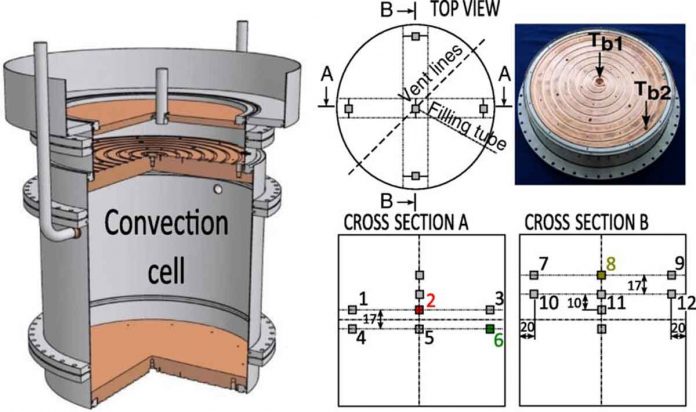Institute of Scientific Instruments scientists have shown that heat flows more efficiently when the temperature of the material through which it is flowing oscillates. The study was published in the journal Physical Review Letters. Scientists described experiments they conducted with heating and cooling helium in a container and its relevance to a theory proposed just two years ago.
Physicist John William Strutt showed an example of oscillating heat flow. He filled a container with a fluid and then placed a heated coil below it and a cooling plate on top. This forced the liquid to rise and fall in the container. The effect has come to be known as Rayleigh-Bénard convection. It can be seen in the action of lava lamps. University of Twente researchers proposed that heat flow in a Rayleigh-Bénard convection system would be more efficient if the heat coming from the base was oscillating. Scientists have shown this theory to be correct.
The work involved creating a container with a heating device at the bottom that could move through a temperature gradient over time. They placed a cooling device on top. Scientists used a gas rather than a liquid helium. They also carried out their experiments under cooler than ambient temperatures. To learn more about the impact of such oscillations on the heat flowing through the system. They conducted multiple runs during which the speed at of the oscillations ranged from 0.006 to 0.2 Hz.
They found that an oscillating heat source moved heat through the system more efficiently. Earlier theory suggested that the improvement in efficiency arises due to a destabilization between the boundaries of the liquids in the chamber. It allowed the liquid areas in them to move past one another more easily.

